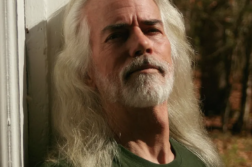YOU MAY not know Rob Epstein by name but you certainly know his films. A pioneer in the world of GLBT filmmaking, Epstein has been acknowledging and addressing the lives of gay people in his films for the past three decades. In the late 1970’s Epstein’s work burst onto the scene with his groundbreaking documentary, Word is Out: Stories of Some of Our Lives, which delved into the lives of ordinary gay and lesbian Americans. Six years later, he conceived and directed the Peabody-Award-winning documentary, The Times of Harvey Milk (1984).
After co-directing The AIDS Show (1986) with Peter Adair, Epstein teamed up with Jeffrey Friedman in San Francisco to form Telling Pictures. Their first film was Common Threads: Stories from the Quilt (1987). Inspired by the Names Project, Common Threads chronicled the spread of AIDS in America during the epidemic’s first decade. The documentary garnered Epstein his second Peabody Award and his second Oscar for Best Documentary Feature.
After jointly producing and directing Where Are We? Our Trip Through America (1989), Epstein and Friedman adapted Vito Russo’s The Celluloid Closet to the screen. Essential for any film historian, The Celluloid Closet uncovered and examined images of same-sex behavior and innuendo over nearly a century of filmmaking. Six years after The Celluloid Closet, Epstein and Friedman made a very somber movie, Paragraph 175, which examined homosexual life in Germany before and during the Nazi era. Since then, Epstein has directed television programs, both dramas and documentaries, but is now poised (with Friedman) to release a film about Allen Ginsberg in the 1950’s called Howl.
A recipient of a Guggenheim Fellowship, a Board Director on the Documentary Branch of the Academy of Motion Picture Arts and Sciences, a teacher and currently Chair of the Media Arts at California College of the Arts in San Francisco, Epstein continues to contribute to the world of cinema with his careful examination of GLBT culture.






